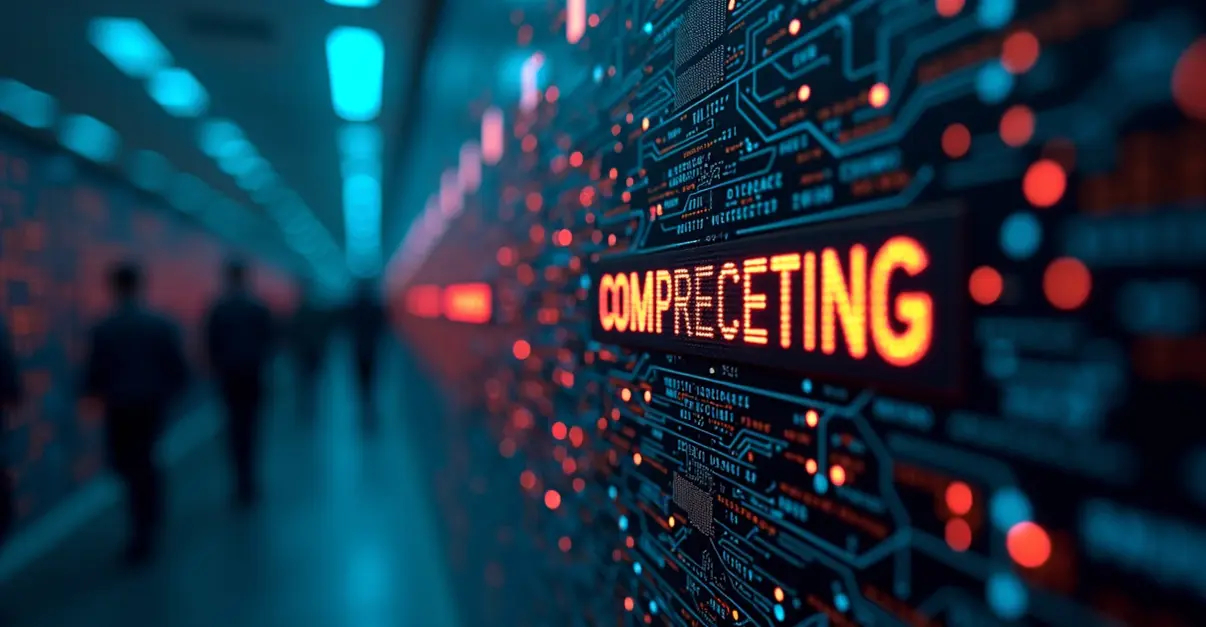Quantum Computing Enters New Era with Error Correction Milestones
The quantum computing industry is witnessing unprecedented progress in 2025 as error correction breakthroughs are dramatically accelerating hardware roadmaps and enabling early enterprise trials. What was once considered a distant theoretical challenge is now becoming practical reality, with companies like IBM, Google, and Microsoft making significant strides toward fault-tolerant quantum systems.
Revolutionary Error Correction Techniques
Researchers at QuEra have developed a groundbreaking approach called algorithmic fault tolerance (AFT) that could reduce quantum error correction overhead by up to 100 times. 'This moves the timeline forward significantly,' says Yuval Boger, QuEra's chief commercial officer. 'We're showing that the enormous overhead once assumed for quantum error correction is not inevitable.' The technique restructures quantum algorithms to detect and correct errors on the fly rather than pausing for regular checks, dramatically reducing computational overhead while maintaining accuracy.
Meanwhile, IQM Quantum Computers has announced a strategic collaboration with NVIDIA to integrate NVQLink technology into its superconducting quantum computers. This partnership aims to enable scalable quantum error correction, which is crucial for achieving fault-tolerant quantum computing. 'The integration supports both error correction and hybrid quantum-classical applications requiring seamless data flow between logical qubits and classical compute resources,' explains an IQM spokesperson.
Hardware Roadmaps Accelerate
Major quantum players are rapidly advancing their hardware capabilities. IBM targets a quantum-centric supercomputer by 2025 with over 4,000 qubits, scaling to 16,632 qubits by 2033. Google aims for an error-corrected quantum computer by 2029, building on their 53-qubit Sycamore processor. Microsoft is pioneering topological qubits with their Majorana 1 processor, designed to scale to a million qubits.
'We're seeing a fundamental shift from NISQ experiments to engineering for scale,' notes a quantum industry analyst. 'The competition is no longer just about qubit counts but about building reliable, error-corrected systems that can handle real-world problems.'
Early Enterprise Trials Show Promise
Quantum computing is transitioning from research to revenue generation, with early commercial applications emerging across multiple industries. Pharmaceutical companies including Pfizer and Roche are using quantum systems for molecular simulations in drug discovery. 'The ability to simulate complex molecular interactions with quantum computers is revolutionizing our drug discovery pipeline,' says a Pfizer research director.
Logistics firms like Volkswagen and FedEx are testing quantum routing optimization, while financial institutions such as JPMorgan Chase are exploring quantum algorithms for portfolio optimization and risk assessment. IonQ reported $7.6 million in Q1 2025 revenue and projects $17 million for Q2, driven by cloud access contracts.
The Path Forward
While challenges remain in qubit stability and scalability, the progress in quantum error correction is creating a foundation for practical quantum computing. 'We're at an inflection point where quantum computing is moving from laboratory curiosity to commercial tool,' observes a McKinsey quantum technology expert. 'The next 2-3 years will be critical as we validate these error correction techniques in real hardware deployments.'
As companies continue to invest in quantum technologies and error correction capabilities mature, industry leaders predict that quantum computing will transform optimization, AI, drug discovery, and climate solutions within 5-10 years. The race is no longer about who can build the most qubits, but who can build the most reliable and commercially viable quantum systems.

 Nederlands
Nederlands
 English
English
 Deutsch
Deutsch
 Français
Français
 Español
Español
 Português
Português







